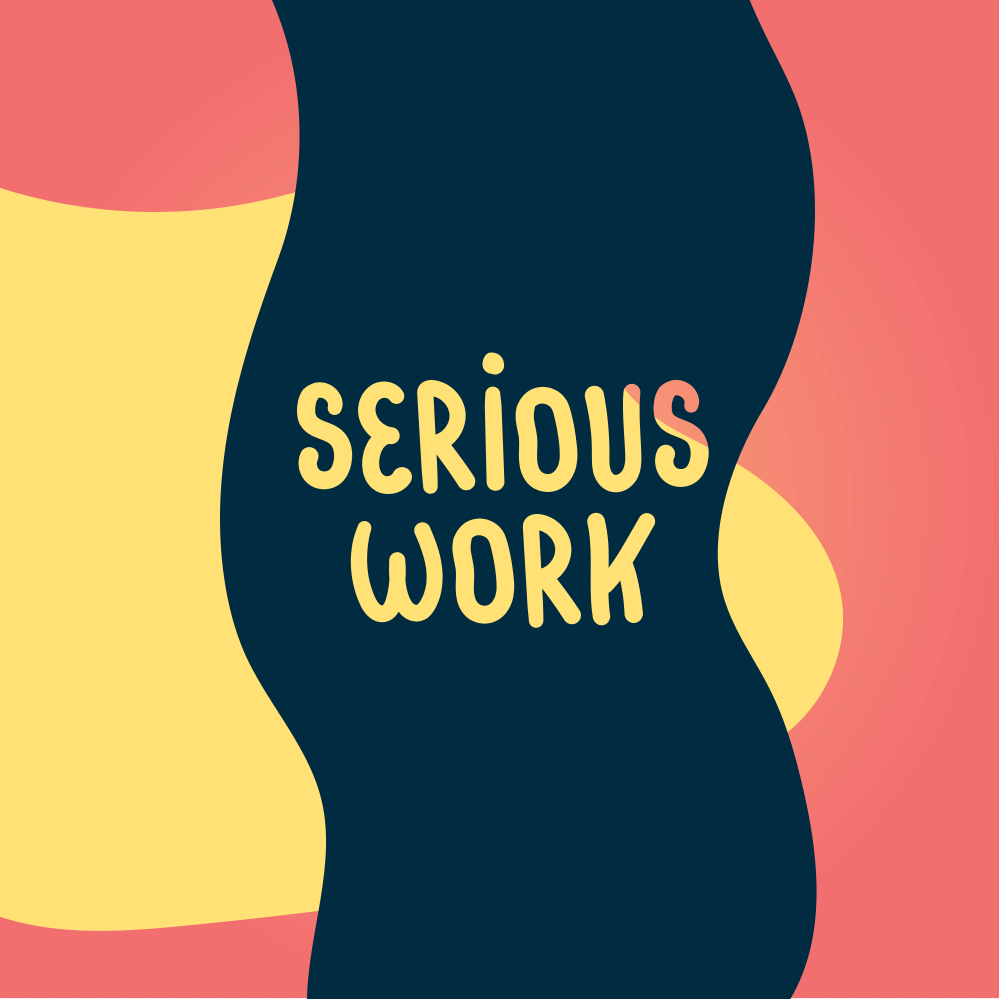Personal Policies of No
The past 9 months of pandemic life have given me more time than usual to contemplate Big Life Questions (and just in case you’re picturing me as a calm Yoda-like character, it should be noted that my self-dialogue generally boasts the combined flavours of wannabe wise philosopher and petulant child). One question that keeps coming up amid the cacophony of dire issues facing our world, society, and personal lives, is what’s important? Or perhaps more specifically, what should I be focusing on? Where should I be spending my limited time and energy?
I’ve frankly been struggling to decipher what I should be saying Yes to in my life. So, I figured why not start at the other end of the question: where should I be saying No?
If you don’t struggle with saying No, this blog post might not be for you. If, however, you’re (like me) feeling crushed by the wave of current and impending disasters and have no idea where to start, you’re welcome to join me on this thought journey, and I hope you find it useful.
Lesson One: saying No is personal
One of the issues I’ve encountered with considering what’s important is that I have no talent for almost half of it, and little interest in the other half. For instance: food production, world peace and childcare are all 100% important, but if I personally had to wake up every day to be a farmer, politician or grade 2 teacher I don’t know if I’d ever be able to find the inner motivation get out of bed.
To do something day-after-day requires some small amount of talent, and a whole lot of personal interest that nudges you to continue doing the thing, paying attention it, and making progress. And thank goodness there are people who are genuinely interested in farming, politicking, and teaching grade 2! I have, however, become convinced that you can’t just go around assigning Important Things to random people willy-nilly and expect positive, humane results. No, to get an individual to do something important and thrive (which, in case you haven’t been paying attention, leads to a sustainable work ethic and therefore sustainable progress) it needs to be more than generally important: it needs to be personally compelling.
Lesson Two: saying No to the Internet of Voices
Particularly now that the pandemic has isolated me almost exclusively to online engagements, many of the societal asks that I’m being confronted with are finding me via social media, the podcasts I listen to, and the news sources that I read. I’m presented daily with voices yelling at me in ALL CAPS, to DO SOMETHING about a hundred different important things: a war in a far-off country, child poverty, the skyrocketing cost of university, illegal clear-cutting of forests, industrial pollution, single-use plastics, the acidification of our oceans, political corruption, access to abortion, blocking a pipeline, Indigenous rights to stewardship of the land, abuse of police power, sexism in the workplace, cancer research, homelessness, gun control, anti-vaxxers, keeping local businesses alive, economic collapse, a worldwide pandemic – I could go on.
The problem is, I believe all these things are important. But for my sanity, and to practically make a dent in any of these issues, I’m realizing that I must give myself permission to say No to most of these requests to DO SOMETHING because it is not possible. Let me repeat that for those in the back (yeah, that’s you, me and every other person suffering from anxiety meltdowns): it is not possible for you to DO SOMETHING about 100 different things in a day, no matter how much people yell in all-caps.
And for the record, I’m sorry to say (and I’m speaking to myself here as much as anyone else) re-tweeting and re-instagramming is not making significant change in these areas. Yes, it can feel personally cathartic (which helps you, but doesn’t contribute any direct action towards a solution for the issue at hand, be it the acidification of our oceans or finding a vaccine), and it can definitely spread outrage (thank you, algorithms), but from my perspective, for the most part it seems analogous to spending all your hours yelling about a fire and never actually picking up a bucket of water to put it out. But let’s say, for argument’s sake, that re-posting did enact real change. Even then, we can still follow this train of thought to its logical concluding crash, can’t we? Because if I was to re-post or share every thing of importance that came up in my feeds it would be a full-time job, and I’d still never to get to the bottom of a stack that’s building 24 hours a day, 7 days a week.
It’s tantamount to taking a spoon and frantically running around a room hitting the tops of 100 different ramekins of crème brûlée, because each one has a pâtissière standing behind it yelling at you to EAT IT! To line-up this analogy even closer to my current experience, the 100 pâtissières are also telling me that it’s URGENT! and that I must eat their crème brûlée before the caramelized crust gets cold.
You can see how this story plays out. By the end of it you’ll have barely cracked the surface of any of the crème brûlées, have no depth of understanding of their custard contents, no experience of eating the thing, and certainly no pleasure or nourishment from the process.
But imagine you took a moment to yourself to survey the room. You breathe. You make a decision and sit down in front of the one single crème brûlée that’s really calling to you (maybe you sit down in front of two, or even three, but let’s remember that all of us have a physical limit to our appetite and time). You crack the surface, delve into the depths of the dish, and its pâtissière guides you through the entire experience. Imagine ninety-nine other people do the same thing.
Do you see what I’m getting at here? Not only is the experience better for you (in all the ways described above), it’s better for everyone else. And the thing (in this case, the eating of a crème brûlée) actually gets done, with the attention and care it deserves.
But, of course, it first requires saying No to ninety-nine crème brûlées.
Lesson Three: saying No to the Voices of Obligation
So, even with a hundred people yelling at you to DO SOMETHING in all-caps on the internet, let’s say you manage to shut them out for a moment of stillness and peace. Now you ask again: what’s important and compelling to me?
And it’s in this instant, when the Internet of Voices volume gets turned down, that you, of course, become aware of the cacophony of the ever-authoritative Voices of Obligation. These voices ask you to DO SOMETHING about the charity a neighbour is asking you to donate to, the overtime your boss is asking you to work, the volunteer committee a colleague is asking you to join, the errand your partner/child/roommate is asking you to do, that health thing the news article is telling you to worry about, the bathroom your inner chore-master is asking you to clean.
Once again, all these things are (on some level) important. But if you let them – just like the Internet of Voices – they can easily take over and fill all of your time, 24 hours a day, 7 days a week.
Personal Policies of No
It’s clear that I need to learn to say No to make space for the right Yes. Of course, some people find this incredibly easy and to those people I say, from the depths of my heart, MUST BE NICE. For the rest of us, it’s not so effortless.
I started wondering what list of questions could stand as an ongoing template to help guide decision-making on what I say No to. I’ve heard these referred to as “Personal Policies” before, and I absolutely love that way of framing them: in this case, specifically, my Personal Policies of No.
So, I thought I’d share what my Personal Policies of No look like so far. They mainly speak to what I will choose to not get involved with, both externally (re-posting, volunteering, working on) and internally (read: worrying about). This list is by no means complete (and I suspect it will continue to exist as a live, evolving document), but I have to say, I’ve already found it useful for turning down the various Voices raining down on me through my day.
I will say No if…
It’s something I have no power to influence the outcome of. For example, I’m not American and can’t vote in any American elections. Worrying about US election outcomes does not, in fact, contribute to changing the vote in either direction.
It does not utilize one of my available skill sets. This rule applies to any field which I don’t have the training to meaningfully participate in. For example: developing a vaccination is incredibly important right now, but I’m not a scientist or medical expert. Once again, like the American election, me worrying about this issue does not actually do anything, or help bring about a vaccination any faster. I could perhaps go to school for another 6-8 years to become a medical scientist (assuming I had the academic chops and savings for it) so that I could therefore work to develop vaccines. But this decision would also require that I say No to any currently pressing vaccine issues, so that I could focus on completing my medical degree and say Yes to them in 6-8 years. *This rule probably requires you to make a list of what your available skill sets are, so that you know what they aren’t!
It’s asking for something I don’t have. This includes not only time and money, but also genuine curiosity and interest. Without the latter, the energy I spend in any area would be short-lived and quickly lead to burnout.
It negatively impacts one of my “must-haves”, i.e. things that I quickly become an irritable, prickly puddle of human distress if I don’t get. That daily list for me seems to include: exercise; 8-9 hours of sleep; laughing with a human that I love; time alone to meditate, write or read. This rule is tricky because sometimes there are things which need to disrupt a schedule, which leads me to this next caveat…
Caveat: unless my inner circle of humans needs me. These would include not only the negative side of disruptions (medical emergencies, a break-up) but also the positive side (celebrating a graduation, a birthday). My inner circle of humans does not include “any human who demands my time”. These are the people I see being an integral, positive part of my life for the long-term (according to Dunbar’s theory, humans can only maintain an inner circle of approximately 5 people, and be close friends with around 15).
It takes away or is dismissive of my humanity or the humanity of anyone else. Humane behaviour is marked by compassion and a consideration for every individual's right to dignity and worth. I’ve read this phrase in various iterations in many different sources and I believe it from the top of my head, through my heart, to the soles of my feet, which is that dehumanizing others is not the path to humanity (Brené Brown has a great bit of writing talking about boundaries and the language of dehumanization).
…this is as far as I’ve gotten so far, but I’ve found the process itself to be incredibly grounding and centering. If you have any Personal Policies of No, I’d love to hear what they are!
Next week, I’m going to take a shot at building some Personal Policies of Yes, so wish me luck! If anything worthwhile comes of the process, I promise to share.






